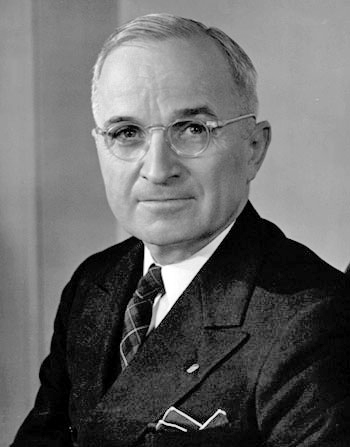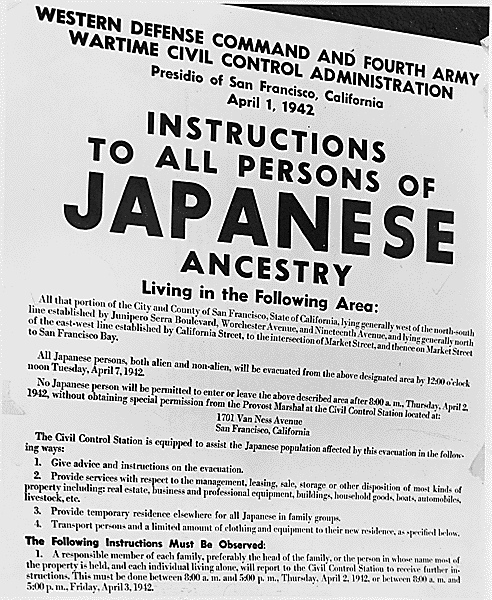In Topeka, Kansas, a young African American girl named Linda Brown stood up for something that many other black girls would not have had the courage to face in 1951. Brown wanted to enter a white school due to the fact her black school was much farther away than the white school. Brown's father asked the NAACP to see if they would be able to assist their side of the argument, and help Brown to get into the school. The white side argued that the black schools were still profitable by some as some became succeessful coming out of high school. Brown and the NAACP tried to argue that the term "seperate but equal" was not applicable to minorities. Supreme Court Justice Earl Warren was the perfect man for Brown as he soon came to the conclusion that Brown was right. The minority position is no place for the term "seperate but equal", therefore it was deemed unconstitutional.
Sara's AP American Blog
Thursday, March 31, 2016
Sunday, March 20, 2016
LAD #36: The Truman Doctrine
After WW2, a battle broke out without fighting between the U.S. and the U.S.S.R. Both nations sought to assert their power and their governmental influence over the developing countries around the world, communism vs capitalism. The Truman Doctrine concerns these developments in post-war Greece. After war-ravaged the country and sent it into a depression and overall disillusionment, the Soviets blockaded Grecian interests, preventing reconstruction and even staging a few terrorist attacks. Citing the inaction of Britain and the UN, Truman asserted the need of the United States to supply and finance Greece so that they would have the materials and the strength to rebuild their small nation. This was a way for Truman to try and stop the spread of communism. Also noted, was that backwards Turkey needed the aid of the democratic giant to spur on democracy and the will of the majority in a depleted post-war nation. As a result the U.S. would be the safeguard of freedom around the globe and the protector against the forces of communism. For this reason that Truman asked Congress to send a total of 750 million dollars and a contingency of American military servicemen and women to Greece and Turkey for reconstruction and modernization.
Sunday, March 6, 2016
LAD #35- FDR's Executive Order #9066
On the grounds that the success of WWII depended on the prevention of foreign espionage in America, FDR declares that the Secretary of War is authorized to construct military areas in which "any or all persons may be excluded", and he gave over to the Secretary the discretion to who should enter these areas. He states that the Secretary is authorized to provide food, transportation, shelter, and other accommodations for these groups. He also grants the Secretary the power to enforce compliance with these laws, and grants them the usage of Federal troops. This was brought along because of the panic after Pearl Harbor, and therefore created racial tensions between certain American groups and the Japanese Americans.
LAD #34- FDR's Declaration of War
Pearl Harbor was attacked by the Japanese on December 7th, 1941. Roosevelt made a request to Congress, so America could declare war against Japan and protect itself. Roosevelt had confidence in two things; 1)the armed forces and 2)knowing that the people of the nation would come together to fight against the Japanese. Roosevelt asked Congress to think of what could happen if the Japanese were not punished for their harmful actions against America. Roosevelt insisted that the Japanese attack on Hawaii, along with all of their other aggressive acts recently, including Midway and Hong Kong, meant that they had no intent on a peace treaty with the U.S. In order to protect the American people, Roosevelt insisted that Congress declare war on the Japanese. This would not only bring upon the entrance of the U.S. into WWII, but also an end to the depression the U.S. had been plagued with because of the war it had to support.
Friday, March 4, 2016
LAD #33- FDR's First Inaugural Address
Franklin D. Roosevelt came into his presidency and the nation was at its all time low economically which became known as the Great Depression. Roosevelt realized the nation's trouble and acknowledges it. One of the things he states about fear is the nation should follow one thought, that "The only thing we have to fear is fear itself." His goal was to get people back working who had lost their jobs, and this would be accomplished by the direct employment of citizens by the government, which is a very progressive reform. Other ways included acting quickly and the teamwork of relief programs throughout the nation. This became known as the "New Deal," which would balance industries and work to strengthen currency flow. The New Deal created jobs and a program to help support the economy. His optimism in a time of depression, allowed for Americans to rally behind him and make it out of the Great Depression.
LAD #32- Kellogg Briand Peace Pact
The Kellogg Briand Peace Pact was signed by the United States, Japan, and parts of Europe in the late 1920's. This document recognized each nations duty to promote the welfare of mankind, it was something they had to do in order to ensure the best world to live in. The Pact stated that the renunciation of war should be used as a national policy to bring about peace and order. With the signing and passage of this pact, any nation that wished to declare war in pursuit of its own interest would be denied the benefits as decreed by the treaty. It was the hope of those who signed the treaty that future generations would follow this example. This was a major effort to keep nations out of war and to use diplomatic negotiations to solve their problems. The nations involved agreed that they would denounce the resulting causalities of war as a way to solve international disputes. They would also be open to consultation so long as they adhered to one another. The government of all nations would be recognized and follow the treaty, and all would possess a copy of the treaty and would notify one another if there were to be any alterations. This treaty was a way to ensure peace in the nation, but it did not work that long. By 1939, Europe was already in another war that captured the world along with it.
Sunday, February 7, 2016
LAD #31: President Wilson's 14 Points
President Wilson's 14 points outlined his beliefs of peace after the war, in this speech to Congress he proposed his ideas.
1) There should be no private meetings and all diplomacy should be peaceful and public.
2) Totally free navigation of the seas, there should be no difference in times of war and peace.
3) Trade should be equal between all nations agreeing to peace.
4) Nations should reduce their armories as low as possible, and used for domestic safety only.
5) Colonial claims should be unbiased, with the nation in mind.
6) All armies should be removed from Russia and allow it to develop in its own way.
7) Belgium should return to the independence it had before the war.
8) France will be completely free and retain control of Alsace-Lorraine.
9) Italians will continue to live in Italy and the borders will be based on nationality.
10) The people of Austria-Hungary will continue to develop in their own way.
11) Rumania, Serbia, Montenegro and other Balkan States will be free and establish their boundaries based on nationality, and they will work on their development.
12) The Turkish government will govern only Turkish people, and the other nationalities that were under Turkish rule, will become independent.
13) Poland will be independent with access to the sea.
14) The League of Nations will guarantee the freedoms and independence of all states in it.
1) There should be no private meetings and all diplomacy should be peaceful and public.
2) Totally free navigation of the seas, there should be no difference in times of war and peace.
3) Trade should be equal between all nations agreeing to peace.
4) Nations should reduce their armories as low as possible, and used for domestic safety only.
5) Colonial claims should be unbiased, with the nation in mind.
6) All armies should be removed from Russia and allow it to develop in its own way.
7) Belgium should return to the independence it had before the war.
8) France will be completely free and retain control of Alsace-Lorraine.
9) Italians will continue to live in Italy and the borders will be based on nationality.
10) The people of Austria-Hungary will continue to develop in their own way.
11) Rumania, Serbia, Montenegro and other Balkan States will be free and establish their boundaries based on nationality, and they will work on their development.
12) The Turkish government will govern only Turkish people, and the other nationalities that were under Turkish rule, will become independent.
13) Poland will be independent with access to the sea.
14) The League of Nations will guarantee the freedoms and independence of all states in it.
Subscribe to:
Comments (Atom)


.jpg)
